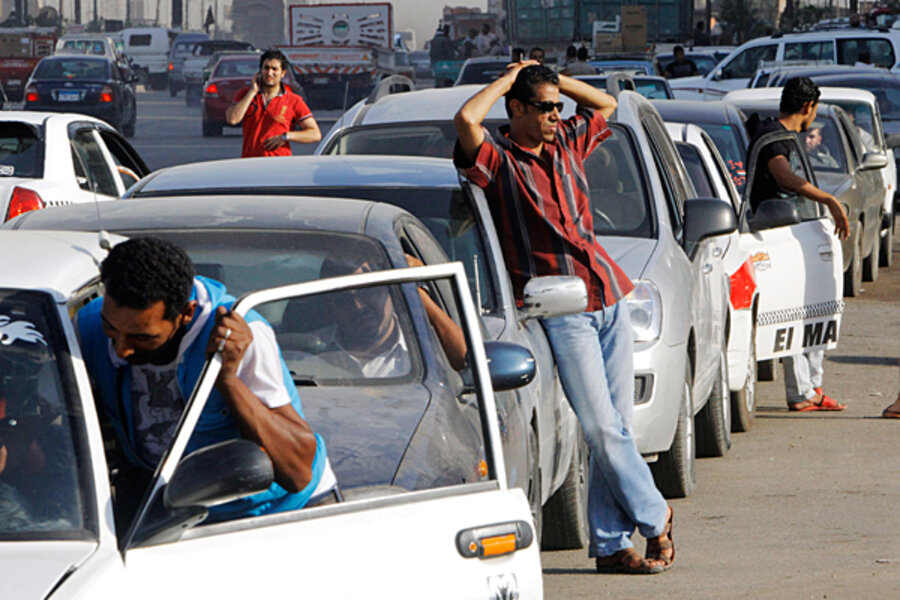Before debating democracy, poor Egyptians want their stomachs filled
Loading...
| Cairo
As tensions rise in Egypt’s sprawling capital city and rival camps of protesters dig in to protect their competing visions of democracy, Umm Ismail has a much more simple goal: finding something to eat.
“We as Egyptians don’t care what’s going on in politics, all we care about is having food on the table,” she says, sitting under an overpass on the fringes of the tony Zamalek neighborhood, where more generous Egyptians are providing free evening meals – known as iftar – during the Muslim holiday of Ramadan. “We feel extremely embarrassed to have to come here for iftar because we can’t get food anywhere else.”
While the Egyptian economy already faced serious challenges before the 2011 protests that ousted Hosni Mubarak, it has sharply deteriorated in the two and half years since, as now-deposed President Mohamed Morsi and the Muslim Brotherhood locked horns with their political opponents. Food prices have spiked, and June’s inflation rate of 9.8 percent was the highest since Mubarak’s time. While the government has tried to keep the cost of basic supplies affordable, such subsidies have helped drive up the budget deficit to 11 percent of GDP. Recent pledges of $12 billion in aid from Gulf countries have eased jittery markets and stabilized food and fuel prices, but Egyptians like Umm Ismail have yet to feel relief.
“It’s been going downhill ever since Mubarak,” she says, sitting at a table covered with stained red carpeting and crumbs from the night before. “At least then we had bread on our table.”
“The problem with Mohamed Morsi is that he doesn’t feel the people’s pain,” adds Umm Ismail, a middle-aged woman with a magenta headscarf framing her tired expression. “We want a president who would come down and see the people, feel our pain.”
It’s not that Umm Ismail is so hungry that she ignores the plight of her fellow citizens, including the 75 or more who were killed in clashes between security forces and protesters last weekend. “Every day we hear of people dying here and there – how long is this going to continue?” she asks rhetorically.
As plastic pitchers of what looks like grape juice is passed around, a man at a nearby table reaches under the table to fill a large plastic bottle with the juice – presumably for later.
But before we are able to ask Umm Ismail or her fellow diners any more questions or take pictures, we are chased out by grizzled, toothless men at the next table over who are insulted, angry, or maybe just plain embarrassed to have a foreign journalist dropping in on what is already a humiliating affair.








